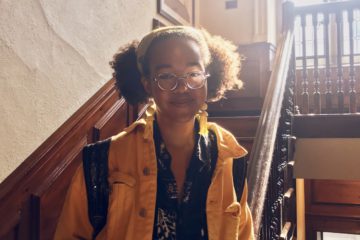“I have been working at Yale since before classes started my first year. I spent Camp Yale scheduling job interviews, as my number one priority was to get an on-campus job. Going to this school would not have been possible unless I could make money. I felt lucky that I got a job early-on, but I soon felt surprised how much it took out of me. I worked in high school, and I was still able to focus on school. However with Yale being as intensive as it is, I quickly fell behind in my classes, keeping up with the material was difficult, and catching up seemed impossible. It was extremely frustrating to watch my friends and peers pursue really cool work or research opportunities and get really involved with student organizations while these experiences were unfeasible to me because I didn’t have any time. Most of my time at Yale is spent working my multiple jobs on top of trying to keep up with my classwork. I didn’t feel as if I had the time to pursue the things I was most passionate about, which felt like a waste of my limited time at this university. It sucks that I’ve had to spend so much of my four years working instead of being able to take advantage of all the opportunities Yale has to offer. Eliminating the SIC going into my senior year means I would be able to spend more time on my thesis projects. I am already stressed about what my unpaid thesis work will take from my jobs and my classes. Without having to worry about work and money, I could put so much more of myself into my senior project. It would mean a lot to me to finish off my Yale career in the way I would choose if I truly had all the options. Summer income is a huge part of me having enough money to pay the SIC as well as help my family out. Due to COVID-19, I lost all my summer income. My summer internship was cancelled and my normal semester jobs are all closed. This devastates my senior year plans. I already work so much during the school year, and without my summer income, I’m afraid I’ll have to work twice as much to pay my SIC which feels completely impossible. Struggling to balance financial necessities with getting the most out of my Yale experience fed into issues with mental health. I had struggled with depression since middle school, but never felt like I had anxiety until college. I began to suffer from panic attacks and long, dark spirals. After years of putting it off and making excuses, I found myself in an emergency room at Yale Health after a friend called on my behalf, explaining that my life may be in danger. I sat on the examination table wringing my hands. I was nervous and I was afraid that if I stood still for one second the anxiety might completely consume me and that I would never recover. The psychiatrist squinted at me in disbelief when I insisted that I didn’t need to be admitted to a hospital, as if she could read suicidality in my eyes. She peppered me with leading questions for the better part of an hour, trying to convince me to take a leave of absence from Yale. She insisted that sometimes taking time off was the best solution. The fear and powerlessness in this moment were overwhelming, and for much of that meeting, I found it hard to speak. I could barely swallow, but a million thoughts were running through my head: Why won’t you help me? Isn’t that your job? Why are you trying so hard to ship me off to somewhere else, anywhere else? Is it so that my brain’s chemical imbalance, my absence of a will to live, and I are someone else’s problem? So that I’m less of a liability? I should be able to get well here. I should be able to attend Yale without sacrificing my mental and emotional wellbeing in the process. When even our own psychiatrists do not seem to think that this is possible, it shows me that Yale needs to seriously retool and reimagine YMHC. That begins with supporting students who are most vulnerable by reducing wait times, hiring more therapists who are POC and LGBTQ+ friendly, and abolishing the SIC.”
Danielle, She/her, 2021, Davenport


